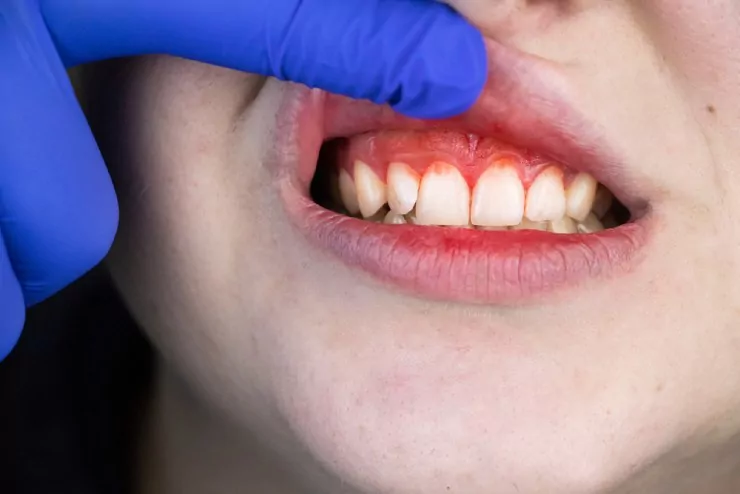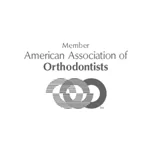
TL;DR: Caring for Toddler Teeth: Super Tips for Preschool Smiles
Keeping up with toddler teeth care between ages 2–5 is key to building lifelong healthy smiles. This blog shares expert-backed guidance from The Super Dentists, IAPD, and AAP on how parents can make brushing fun, prevent cavities, and stop thumb-sucking habits before they affect little smiles.
Here’s what you’ll learn:
- How to brush a 2-year-old’s teeth and choose the right toothpaste amount.
- Tips to prevent cavities from bottles, sippy cups, and sugary snacks.
- Gentle, effective ways to get your toddler to stop sucking their thumb.
- When to see a dentist for 2-year-olds and key dental milestone ages.
- The best tools and oral health for preschoolers, including SuperMouth products designed for ages 2–5.
From first words to first friends, the toddler years and early preschool years are filled with milestones, and, let’s be honest, a heavy dose of the “terrible twos”…where kids learn the word “No” and may become tantrum-prone. But one thing you definitely don’t want to observe in your little ones if you can help it? Cavities!
Just how common are cavities in 5-year-olds? Well, according to Healthychildren.org, between a quarter and a third of kids develop cavities by age 5, and 1 in 4 children from ages 2-5 show decay in their baby teeth. Thankfully, your little ones don’t have to be a statistic. In fact, research shows that most cavities are preventable.
As you’ll also read about, cavities aren’t the only oral health concern to center on in your little one’s toddler and preschool years. We’ll also provide you with tips on how to get your toddler to stop sucking their thumb, as well as more practical considerations, like tips on the mechanics of how to brush a 2-year-old’s teeth.
1. Toddler Teeth Basics: Why Early Care Matters
Baby teeth eventually fall out, but they still play a huge role in your little one’s overall development, and you shouldn’t think that just because the “Tooth Fairy” might come collect them on a pillow one day, things like cavities in baby teeth don’t matter. On the contrary. Baby teeth help with:
- Chewing nutritious foods
- Speaking clearly
- Holding space for future permanent teeth
Maybe even more importantly, the answer to the question “Do cavities in baby teeth affect permanent teeth?” is, unfortunately, yes. Early decay can damage developing permanent teeth (AKA “adult teeth”), and it can also lead to spacing and bite problems.
This is why there are certain pivotal ages when it’s vital that your little one visit the dentist. For instance, seeing a dentist for 2-year-olds is important. Actually, according to the International Association of Pediatric Dentistry (IAPD), you should wait until no later than your child’s first birthday to see a dentist. But we digress.
The reason that these visits are crucial is that they allow the dentist to see if permanent teeth are coming in normally and if baby teeth are healthy or show signs of decay. They can also help catch the effects of things like thumb-sucking or provide treatments to remedy any issues that are occurring.
Did You Know? A main reason for early tooth decay in toddlers and preschoolers is called “baby bottle tooth decay”, and it often happens when little ones fall asleep with bottles or sippy cups containing milk or juice. So try giving your little one a sippy cup with water in between meals instead to rinse their mouth out of cavity-causing sugar monsters!
2. Brushing & Flossing Fun: Building Healthy Habits Early On
Knowing how to brush a 2-year-old’s teeth is as important, if not more important, than knowing that doing so is important in the first place. Because let’s be honest, toddlers and preschoolers can be stubborn…which may be why you find yourself here!
Because of this, experts recommend making tooth brushing fun by turning it into a game or even a family activity! You can:
- Play your little one’s favorite two-minute song
- Use animal voices (i.e., “Brush like a lion!”)
- Create a sticker or reward chart (this works for more than brushing, by the way 😉)
- Try “family brushing contests”
As for the mechanics and logistics of brushing, the IAPD recommends:
- Using a soft-bristled child-sized toothbrush or even a musical singing toothbrush
- For kids under 3, use a grain-of-rice-sized smear of pH-balanced non-fluoride toothpaste
- For kids over 3, use a pea-sized amount of pH-balanced fluoride toothpaste
- Brush twice a day for two minutes during each session
- Don’t rinse – just brush and spit out! Or, if your little one prefers, rinse and then follow up with an anticavity pH-balanced mouthwash (rinsing toothpaste effectively removes anticavity properties of toothpaste, in case you didn’t know)
Super Product Pick: The SuperMouth Oral Care System for Ages 2–5 includes fun toothbrushes, safe toothpaste (fluoride or non-fluoride), and musical brushing routines that help your child love oral care time.
3. Cavity Prevention, Thumb Sucking, and Dental Visits
Stop Cavities Before They Start
Over 40% of children develop cavities by kindergarten, but making small daily changes like the following can make a HUGE difference:
- Limit your kiddos’ intake of sugary drinks and snacks and instead encourage consumption of veggies, cheese, yogurt, and other healthy snacks
- Have them rinse their mouth with water after meals and snacks – especially sweets
- Make sure they brush and floss twice daily with dental products that are safe and effective at cavity prevention and oral microbiome maintenance
How to Get Your Toddler to Stop Sucking Their Thumb
Why is this even important? Although sucking seems soothing to your little ones, it can cause bite problems after the ages of 3-4! To help them stop:
- Celebrate and praise all “thumb-free” moments
- Gently remind your child about the habit, especially at bedtime
- If the habit continues after age 6, ask your pediatric dentist for advice
When to Visit the Dentist
As our dental milestone guide recommends, you should make dental appointments for your little ones to ensure everything is progressing smoothly and recommend or administer any needed treatments at these ages:
- Age 1: First visit and parent education
- Ages 2–3: Monitor new teeth and habits
- Age 4: Address fluoride and thumb-sucking
- Age 7: First orthodontic check
You’ve Mastered Toddler Tantrums. Let Us Help with Toddler Teeth!
From cavity prevention to tooth removal; thumb-sucking help to product recommendations, at The Super Dentists, we’re here to be your resource for everything related to toddler and preschool dental health and oral care!
Bring your child to one of our locations near you today and see why kids LOVE visiting The Super Dentists in San Diego + beyond!











